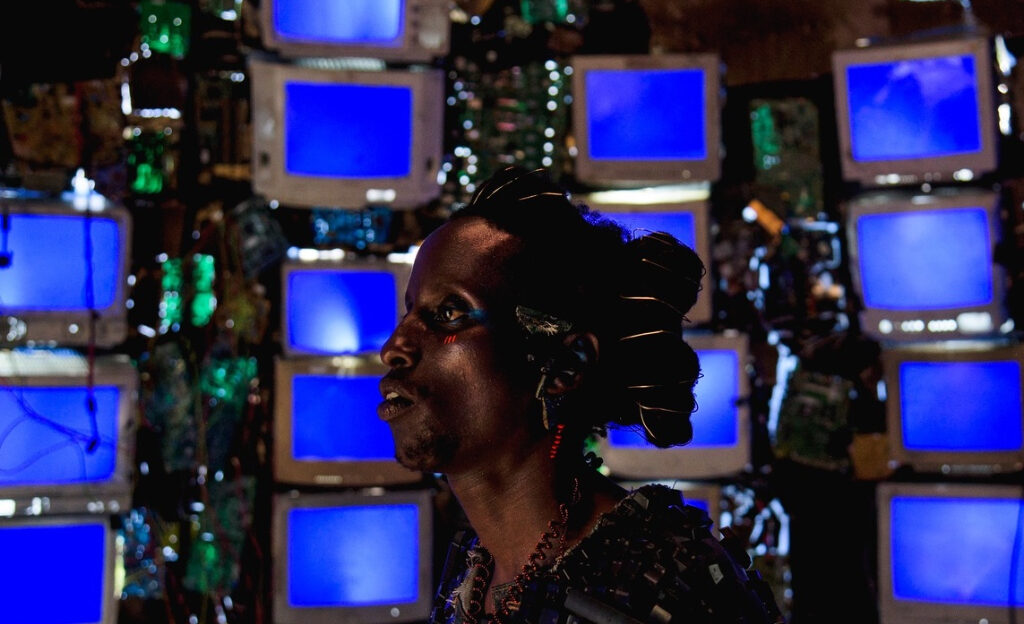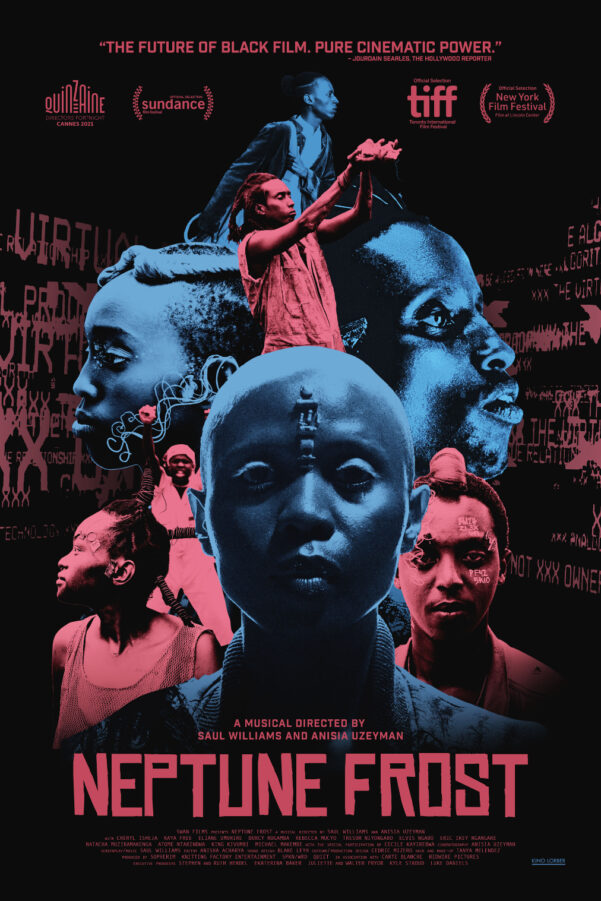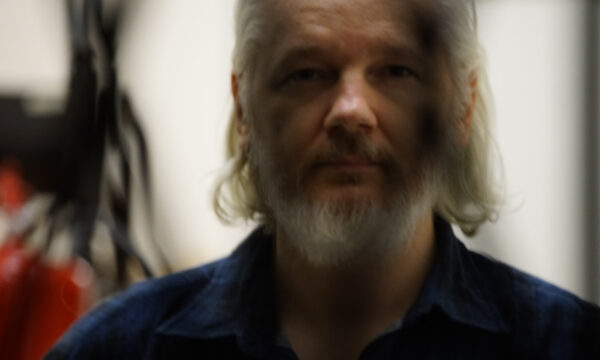Neptune Frost

It’s sometimes an overused phrase, but on this occasion, really do prepare yourself to witness something quite unlike anything you’ve ever seen before. Neptune Frost, the sci-fi romantic musical film co-directed by Saul Williams and Anisia Uzeyman, is an Afrofuturist story out of Burundi, that sees a group of escaped miners create a computer hacker organisation that will before long attempt to overrule the authoritarian regime they once fell victim too. Making the dream of liberating their people a reality rests in their hands.
A story of oppression and hope, Neptune Frost is an abstract and absorbing spectacle, with luminous, fluorescent colours swirling around viewers’ eyes as they are drawn into this spell-binding, non-binary adventure. The opening work song that gives off strong “Stomp” vibes sets up what one can expect from this movie, as it becomes abundantly clear this film is bursting with creativity, imagination and musical timing, all blended together with exciting cinematography. These musical sequences, both full song and spoken word, lead the way throughout the film, executed to perfection as if simply being lifted from a musical in London’s West End and placed into some harsh and desolate landscapes.
Shot on location in Rwanda, the film leaves no holds barred as it embraces the environment and the people it is working around. There is no doubt that a number of supporting cast members and extras are simply locals on set and this element adds a feeling of authenticity to this futuristic picture. With a majority of its funding coming solely from a Kickstarter campaign with the endorsements of Lin-Manuel Miranda and Ezra Miller – both of whom are producers for the movie – it is hardly surprising that there is a lack of computer-generated visual effects, but it is artistic invention and versatility that gives Neptune Frost its charm. Sure, a dream sequence includes bright paints dotted on bike wheels, but the narrative works because of it.
This said, the movie does lack an element of grace as it moves from scene to scene, musical number to musical number, as the dialogue doesn’t carry the plot particularly assuredly, but imagery speaks louder than words in this instance. As the story continues towards a larger third act and the uniting of characters, a greater political message is revealed, drawing the wider world, including China, Russia and the West into the story. It emerges that this isn’t a centralised movie but instead addresses real labour issues and the influence of other countries’ capitalist behaviours and financial thirst on Africa as a continent, leaving all the more food for thought than originally expected. As the credits roll, ask yourself again if you can doubt whether this is a film like none you’ve ever seen before.
Guy Lambert
Neptune Frost is released in select cinemas on 4th November 2022.
Watch the trailer for Neptune Frost here:
























Facebook
Twitter
Instagram
YouTube
RSS